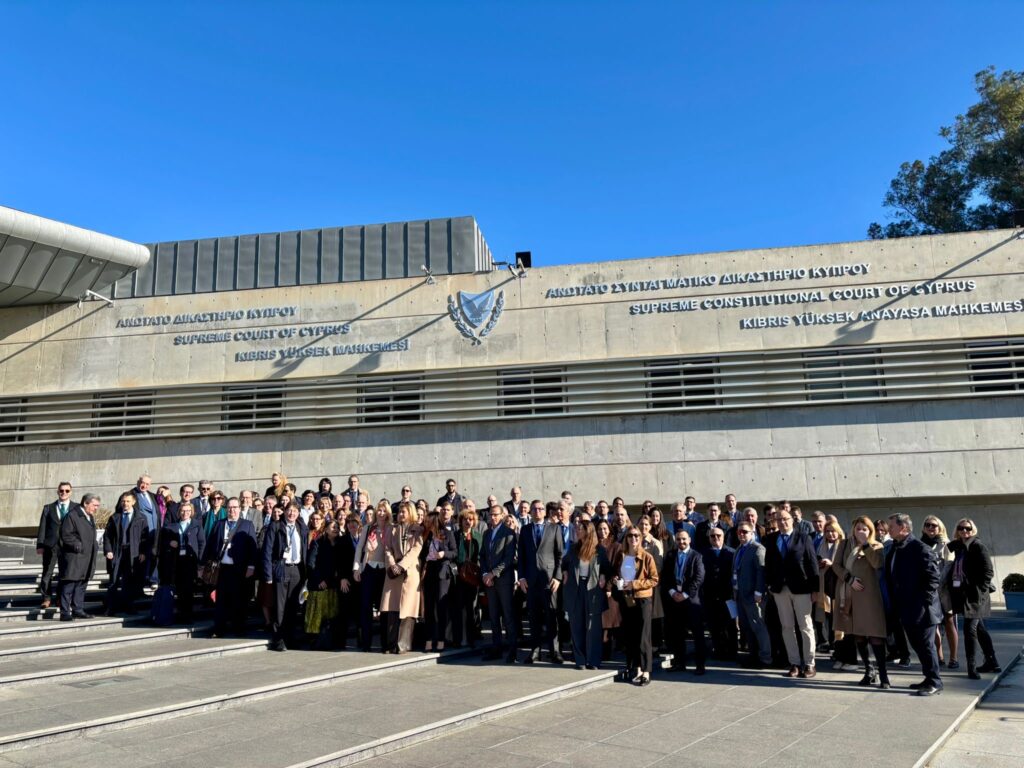Previous Article
News
Recap Final Conference DOMICE: “Offender Management is not maths, but about chemistry”
Over 100 delegates from 29 European countries gathered in Barcelona to participate at the CEP final conference of the European project DOMICE (Developing Offender Management in Corrections in Europe), on 29th and 30th September. “Case management is critical to the effectiveness and efficiency of correctional systems. Therefore we were very proud to provide a platform to improve mutual knowledge and exchange best practices on this topic”, reacts Marc Cerón, as Deputy Director General Alternative Sanctions of the Catalonian Autonomous Government one of the hosts of the conference.

DOMICE was started in 2009 on the initiative of the National Offender Management Service for England & Wales (NOMS). It united partner organisation from Denmark, Bulgaria, Catalonia, the Netherlands and the UK, as well as CEP. Via a comparative study of approaches to case management in prison and probation administrations across Europe, the project aimed to identify best practices as well as what works in case management (CM).
“In order to collect the data on CM, five so-called Focus Groups were organised”, explains Marc Cerón, who is also the President of CEP. “These were regional meetings, held in Barcelona, Copenhagen, Rotterdam, Sofia and Frankfurt. At the Focus Groups national delegates were invited to explain how case management in corrections is organised in their countries. Also they were challenged to reflect on their CM arrangements and CM systems. The findings of the Focus Groups formed the basis of the DOMICE conference.”
The final conference of DOMICE was kindly hosted by the Autonomous Government of Catalonia, which offered a venue, two receptions and the opportunity to hold a press conference. “The Justice Department of the Government of Catalonia runs the management of the Catalonian Prison and Probation systems from 1984”, explains Marc Cerón. “From the very beginning it wanted to engage its activities with the best practices around Europe. For this reason, the Justice Department became member of CEP. Nowadays one of the best options to innovate is to take part in EU founded projects, in particular in those related with key actions of our mission: ensure the safety of the public improving the way to deliver, in terms of rehabilitation, with offenders. That is why we were keen, and honoured, to organse the DOMICE final conference.”
As every country has designed its own CM structure, the information presented at the conference was very rich. One of the main conclusions, however, was that CM arrangements are rarely designed to span whole correctional systems. They are almost always specific to a particular stage of the system, a particular provider or project or sentence or environment.
“It is quite remarkable that no country has a truly integrated CM system that spans prison, probation and other correctional agents”, reacts Marc Cerón. “As I said before, CM is crucial for the success of the correctional systems in protecting the public from further crime by rehabilitating the offenders. Therefore we need to optimize the circumstances for the case managers. After all CM is not just applying procedures, but is about producing changes in the lives of ex-offenders. So it is not maths; it is about chemistry. That is a clear message that was sent out at the conference.”
Another clear message was that DOMICE is the start of an international dialogue about correctional case management, not the completion of it. Marc Cerón: The conference showed that there is no simple off-the-shelf system which can be transplanted from one jurisdiction to another. Therefore ways should be found to continue to exchange information so that each system can learn from others. CEP will support this by hosting a dedicated website, which will contain overviews of the CM arrangements of more than 30 jurisdictions in Europe. More about this website will be announced in the next CEP Newsletter.”

Related News
Keep up to date with the latest developments, stories, and updates on probation from across Europe and beyond. Find relevant news and insights shaping the field today.
Recap

Probation in Europe, Technology
CEP represented the Probation Sector at the European Judicial Training Conference on Digital Justice @2030
03/03/2026
On 26–27 February 2026, the European Commission organised the European Judicial Training Conference “Creating a Supportive Environment for Digital Justice @2030” in Nicosia, Cyprus, under the auspices of the Cypriot Presidency of the Council of the EU and in cooperation with the Cyprus Judicial Training School.
New

Uncategorized
Newsletter February 2026 out now
27/02/2026
CEP’s latest newsletter is out now! Articles on the Interactive European map of probation education and training institution contacts, Registration open for the Workshop on Caseload and Workload and 14th Conference on Electronic Monitoring and more. >> Read here
New

Probation in Europe
New Division episode: Daniel Wolter on the DBH Federal Association
23/02/2026
The 18th episode of Division_Y features Daniel Wolter, Director of the DBH Federal Association for Social Work, Criminal Law and Criminal Policy, based in Cologne, Germany.
New

Victims rights
European Day for Victims of Crime
23/02/2026
Yesterday, 22 February, marked the European Day for Victims of Crime.
At CEP, we recognise that crime causes harm to individuals and communities. Probation work focuses on accountability, rehabilitation and reducing reoffending, contributing to the prevention of further victimisation.

CEP Board
Interview with new CEP board member Jana Bewersdorff
19/02/2026
During the General Assembly in Austria, a new CEP Board got elected for the upcoming three years. In the coming weeks we will publish interviews with all newly-elected board members where they will share information on their professional background, how they would like to contribute, what challenges lie ahead and many more.
Enjoy reading!
Recap

Research
Recap: Expert group on Research
18/02/2026
The Expert Group on Research met on 17 February at the CEP office in Utrecht, The Netherlands, for its annual face‑to‑face meeting.
Subscribe to our bi-monthly email newsletter!
"*" indicates required fields
- Keep up to date with important probation developments and insights.

